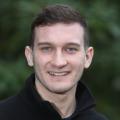
A PEEBLES man who was told he had months left to live has opened up about his experience with cancer – two years after he was given the news.
Alan Vannan, 62, was diagnosed with squamous cell carcinoma (SCC), the second most common skin cancer.
And Alan said the time immediately after the diagnosis can be the most difficult part.
“It started with a lump on my neck and cheek, so I went to the GP,” he said. “When I saw the doctor at St John’s, he took one look and diagnosed it as skin cancer and said they’d need to operate on it quickly. A Macmillian nurse, who’s been brilliant, called me on the way home.
“Processing what people are telling you after a cancer diagnosis can be the most difficult part.
“Next was the surgery followed by radiotherapy, which wasn’t easy. Beforehand, I always thought of skin cancer as something minor and easily treated.”
Unfortunately, after his treatment, Alan received the news that the cancer hadn’t gone away.
Alan continued: “That was a difficult time. They couldn’t operate further. It came as a bit of a shock. Mentally, it was hard to process. They told me I had months left and that’s when I went to Dr Mackenzie.
“I was given immunotherapy and it’s the best thing that’s happened to me.”
Alan – who was speaking as part of Skin Cancer Awareness Month – has been administered with immunotherapy for two years.
“I’ve gone from being told I had months to it being two years later,” said Alan. “As soon as I started taking the drug the wound healed up. For me, it’s been absolutely fantastic. Every time I’ve got a scan I expected it to get worse, but it never has.
“I can’t praise the staff highly enough. The nurses, surgeons, radiologists and oncologists at the Western General and St John’s, and the Macmillian nurses, have all been amazing.”
Dr Joanna Mackenzie, consultant clinical oncologist at Edinburgh Cancer Centre, described immunotherapy as a “huge step forward” in managing skin conditions. Prior to this, patients like Alan with advanced SCC who exhausted other treatments, such as surgery and radiotherapy, would not have had other options.
“We’re always looking for ways to improve how we support our patients, and this has been a huge step forward in our management of difficult skin cancers,” said Dr Mackenzie.
“To see it make such a difference to people like Alan who, just a few years ago, we wouldn’t have had the tools to help is really fulfilling for us as a team.
“We’re also looking to conduct research to see if immunotherapy can be used at an earlier stage to help a wider number of patients with SCC.”
And Dr Mackenzie called on people to protect their skin when out in the sun this summer.
She said: “It’s easy for us to think that, because we see many months of cold weather, the summer months can’t cause too much damage.
“Please contact your GP if you’re concerned about any unusual changes to your skin.”



Comments: Our rules
We want our comments to be a lively and valuable part of our community - a place where readers can debate and engage with the most important local issues. The ability to comment on our stories is a privilege, not a right, however, and that privilege may be withdrawn if it is abused or misused.
Please report any comments that break our rules.
Read the rules here